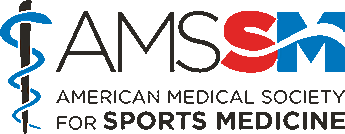 Background Massage therapy is a practice involving physical manipulation of muscles and body tissue. Many different cultures have used massage for thousands of years to promote health. Different forms of massage exist today, including Swedish, deep tissue and sports massage. A massage therapist, physical therapist or athletic trainer may perform massage therapy depending on the setting. There are also methods of self-massage, including percussive therapy devices and foam-rolling devices. Why Is It Used? Massage therapy has many uses, including for relaxation and pain relief. In active individuals, massage may provide benefits to promote recovery and improve athletic performance. In addition, massage therapy may speed up healing of injured muscles and ligaments, improve flexibility and strength and decrease muscle soreness. In theory, massage works by increasing blood and lymphatic flow in targeted areas, causes relaxation of nerves and has positive effects on fascia (tissue that surrounds muscle). Does It Help? Massage therapy may be beneficial, depending on the individual and the purpose. Some research studies have shown that massage may help improve flexibility in the short term, and massage therapy has demonstrated short-term benefits on neck and shoulder pain. However, research on the benefits of massage on athletic performance and muscle soreness is mixed. Foam-rolling and percussive therapy may help an individual feel less soreness or improved recovery, but may not result in significant improvement in athletic performance. Massage therapy performed by a trained professional typically does not have significant negative side effects. Possible side effects include discomfort, bruising and allergic reaction to creams or lotions used. Sports Medicine Evaluation Evaluation by a sports medicine doctor can be helpful in deciding whether massage therapy may be beneficial to you. The initial evaluation would be a typical clinic visit, with questions about your medical history and a physical examination. Your provider may decide to run further tests. They may recommend medications, physical therapy or other treatment methods to help you reach your treatment goals. Individuals with cancer or on blood thinners should consult with their physician prior to receiving massage therapy. Massage therapy is not recommended over areas of skin infections or wounds. Percussive devices should not be used over sites of fracture, nerves or near large blood vessels (such as in the neck). Return to Play Massage may play a role in recovery from injury and be utilized as part of a comprehensive treatment program. In certain situations, massage may help to improve flexibility, reduce pain and aid in faster return to play. When recovering from an injury, a sports medicine physician can help you determine when it is safe to return to sports. Prior to an athletic event, massage can be part of a warm up routine. When performed after exercise, athletes may feel it helps with muscle soreness and improved recovery between athletic events. AMSSM Member Authors References Category: Treatments in Sports Medicine, [Back] |

